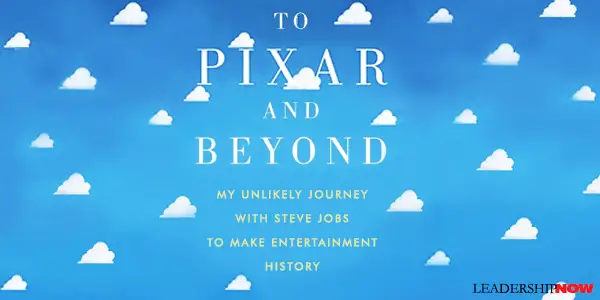 Leading Blog | Posts by Month |
 Leading Blog | Posts by Month |
11.30.16

LeadershipNow 140: November 2016 Compilation
See more on
Posted by Michael McKinney at 01:17 PM
11.24.16

Gratitude is Good for You Too
WE KNOW GRATITUDE makes relationships thrive and makes trust possible. Gratitude encourages, clarifies, motivates, includes, and unifies. When we show gratitude, people feel valued, they know what’s important, they want to do more, and they feel part of something bigger than themselves. But gratitude is good for you too. Gratitude puts you in the right mindset to lead. Gratitude and humility are interconnected. They reinforce each other. Gratitude says, “I didn’t do this alone.” French philosopher Andre Comte-Sponville wrote, The narcissistic leader or “the egoist is ungrateful because he doesn’t like to acknowledge his debt to others and gratitude is this acknowledgement.” A lack of gratitude is at the core of narcissism. We alone are not responsible for who we are and what we do and that is the essence of leadership. We are never truly self-sufficient. In a practical way, gratitude provides guardrails in our life. Gratitude helps us to protect from ourselves. It is amazing how much gratitude plays into avoiding poor behavior and wrong thinking. Gratitude sets a boundary on our thoughts by making us mindful of others. It helps us to avoid going where we should not go because we are more self-aware. Gratitude requires that we slow down and reflect. Gratitude is the basis of emotional intelligence. It puts other people first. It says you know and you care. While empathy has been found to be essential to leadership, empathy is not empathy if it is silent. It must be expressed. Gratefulness helps to curb unproductive emotions such as frustration, resentment, and revenge. Studies have shown that it is an antidote to depression. It has the power to heal and move us forward. It improves relationships and is a remedy to envy and greed. Instead of trying to strive with others we are thankful for what they do. It eliminates a leader’s tendency towards entitlement. Grateful people find more meaning in life and feel more connected to others. In these changing and uncertain times, gratitude is a leaders ally. Gratitude looks at the long term and doesn’t focus on the present situation. Life is a continuum. Gratitude allows a leader to appreciate where they are and the resources they have at their disposal to face what life throws at them. A habit of gratitude gives us perspective. It doesn’t blind us to the negative but it facilitates a solution. Gratitude can’t just be something we do is has to be who we are as a leader. More than a behavior it must come from the heart. It must be the mindset we lead from, manage from, and make decisions from. Gratefulness is grounded in reality because ultimately we must realize that everything good in our life is a gift. Leadership begins and ends with gratefulness.
Posted by Michael McKinney at 11:34 AM
11.07.16

5 Leadership Lessons: To Pixar and Beyond
FROM A PICTURE IN A MAGAZINE, Lawrence Levy was asked by Steve Jobs to become the CFO of Pixar and structure it in a way that investors could understand it. The trick was to preserve whatever it was about Pixar that enabled great stories to happen in the process. And he captures well how that was done. 
Both Steve and I had a strong distaste for approaching negotiations this way. We preferred to develop our positions without thinking through a backup… Once Steve decided what he wanted in a negotiation, he developed something akin to a religious conviction about it. In his mind, if he didn’t get what he wanted, nothing else would take its place, so he’d walk away…. The risk, however, was in so overreaching that we would end up with nothing. If we were not going to have a backup plan, we had to be very careful about knowing what we wanted.
We humans do better when we have something to ground us, a deep source from which we can draw wisdom, insight, and inspiration. The goal of that source is to empower us, to bring depth and fulfillment to our lives, to give us the means to soar. 
Posted by Michael McKinney at 08:36 AM
11.01.16

First Look: Leadership Books for November 2016Here's a look at some of the best leadership books to be released in November.    
For bulk orders call 1-800-423-8273  Build your leadership library with these specials on over 100 titles. All titles are at least 40% off the list price and are available only in limited quantities. "It is better to read a little and ponder a lot than to read a lot and ponder a little." — Denis Parsons Burkitt
Posted by Michael McKinney at 02:02 PM
|
BUILD YOUR KNOWLEDGE


How to Do Your Start-Up Right STRAIGHT TALK FOR START-UPS 
Grow Your Leadership Skills NEW AND UPCOMING LEADERSHIP BOOKS 
Leadership Minute BITE-SIZE CONCEPTS YOU CAN CHEW ON 
Classic Leadership Books BOOKS TO READ BEFORE YOU LEAD |
|